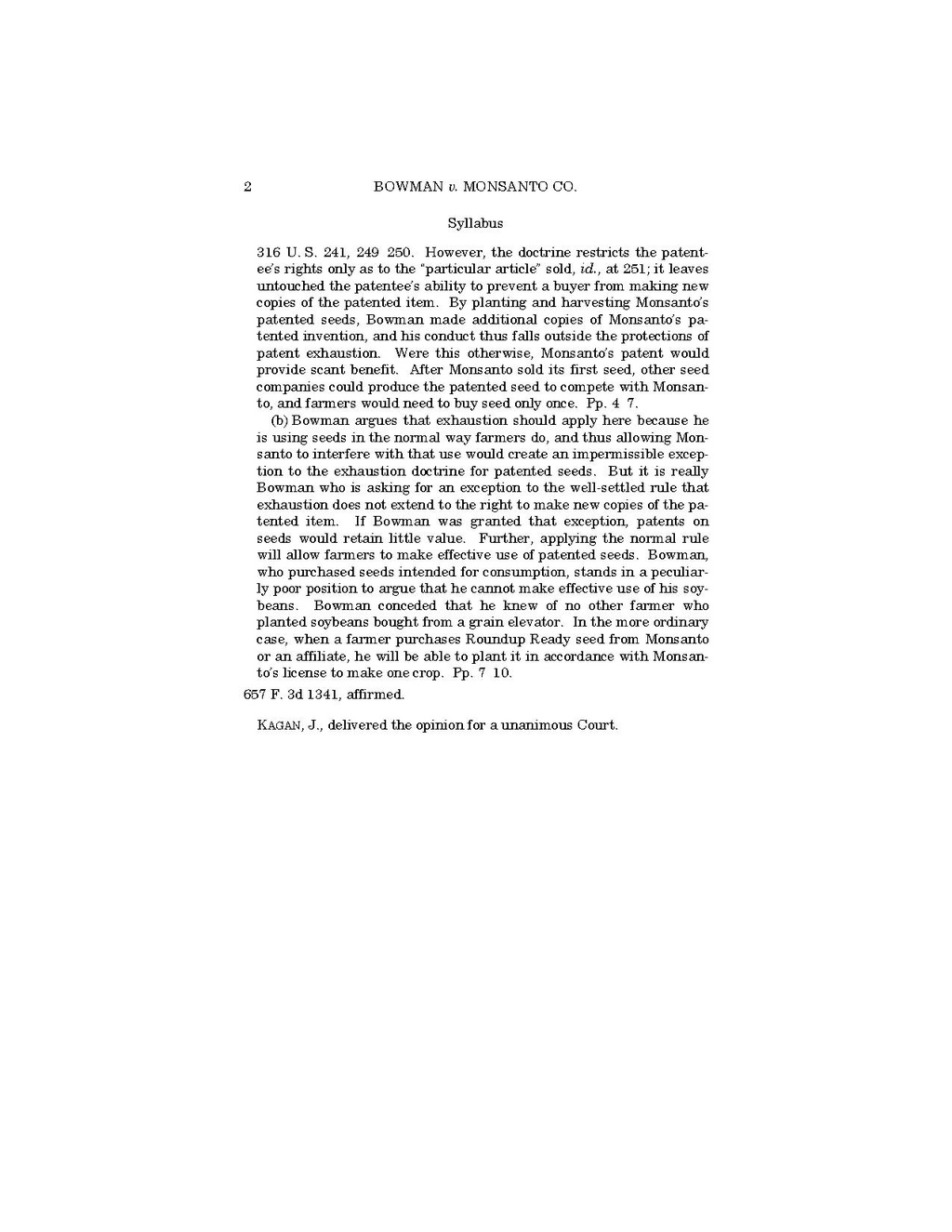Syllabus
316 U. S. 241, 249 250. However, the doctrine restricts the patentee’s rights only as to the "particular article" sold, id., at 251; it leaves untouched the patentee’s ability to prevent a buyer from making new copies of the patented item. By planting and harvesting Monsanto’s patented seeds, Bowman made additional copies of Monsanto’s patented invention, and his conduct thus falls outside the protections of patent exhaustion. Were this otherwise, Monsanto’s patent would provide scant benefit. After Monsanto sold its first seed, other seed companies could produce the patented seed to compete with Monsanto, and farmers would need to buy seed only once. Pp. 4 7.
(b) Bowman argues that exhaustion should apply here because he is using seeds in the normal way farmers do, and thus allowing Monsanto to interfere with that use would create an impermissible exception to the exhaustion doctrine for patented seeds. But it is really Bowman who is asking for an exception to the well-settled rule that exhaustion does not extend to the right to make new copies of the patented item. If Bowman was granted that exception, patents on seeds would retain little value. Further, applying the normal rule will allow farmers to make effective use of patented seeds. Bowman, who purchased seeds intended for consumption, stands in a peculiarly poor position to argue that he cannot make effective use of his soybeans. Bowman conceded that he knew of no other farmer who planted soybeans bought from a grain elevator. In the more ordinary case, when a farmer purchases Roundup Ready seed from Monsanto or an affiliate, he will be able to plant it in accordance with Monsanto’s license to make one crop. Pp. 7 10.
657 F. 3d 1341, affirmed. Kagan, J., delivered the opinion for a unanimous Court.
